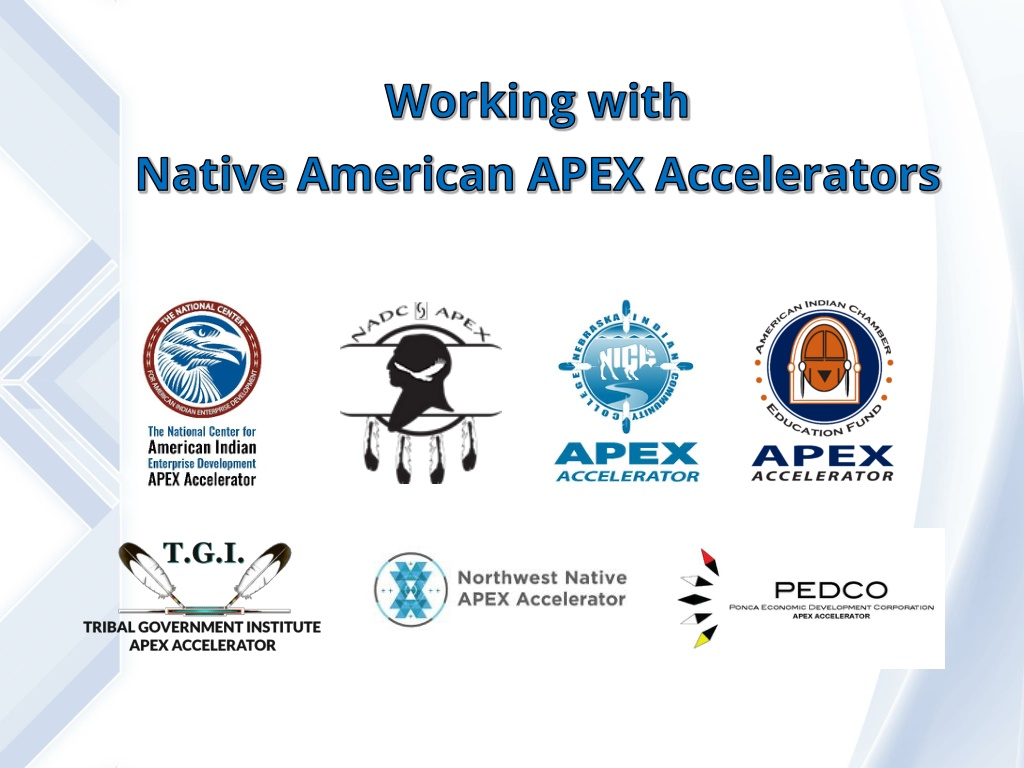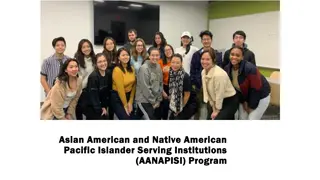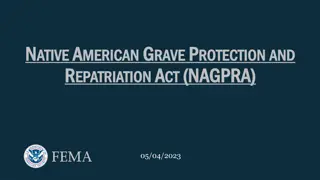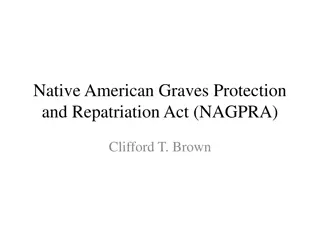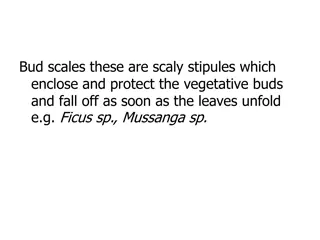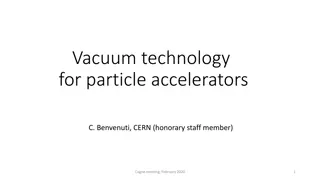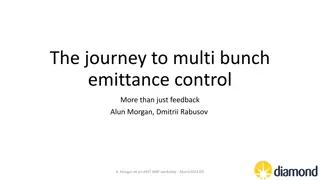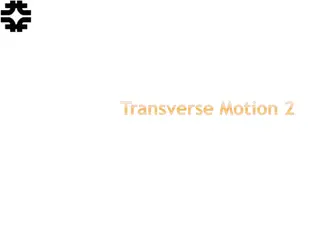Native American APEX Accelerators Program Overview
The Native American APEX Accelerators Program, formerly known as PTACs, is a nationwide network of procurement professionals dedicated to assisting local businesses, including federally recognized Indian tribes and Alaska Native entities. Services are provided at no cost and aim to strengthen the defense industrial base by fostering innovation, diversity, and resilience in the supply chain. The program offers various services such as certification application assistance, procurement education, and post-award support to help businesses compete successfully in government marketplaces.
Download Presentation

Please find below an Image/Link to download the presentation.
The content on the website is provided AS IS for your information and personal use only. It may not be sold, licensed, or shared on other websites without obtaining consent from the author. Download presentation by click this link. If you encounter any issues during the download, it is possible that the publisher has removed the file from their server.
E N D
Presentation Transcript
Working with Native American APEX Accelerators
APEX Accelerators (formerly PTACs) The APEX Accelerators Program, formerly known as the Procurement Technical Assistance Program (PTAP). It is administered by Department of Defense (DoD) Office of Small Business Programs (OSBP) in cooperation with states, local governments, and nonprofit organizations. Ninety-four APEX Accelerators with over 300 local offices in 49 states, Washington, D.C., Puerto Rico, Guam, and Northern Mariana Islands form a nationwide network of dedicated procurement professionals working to help local businesses compete successfully in the government marketplaces. Part of our network includes APEX Accelerators that specialize in assistance to federally recognized Indian tribes and Alaska Native entities, their members, and reservations throughout the country. Mission: Serve as the axis for existing and new business to strengthen the defense industrial base by accelerating innovation, fostering ingenuity, and establishing resilient and diverse supply chains. Vision: A diverse and resilient domestic industrial base that can deliver preeminent solutions to the military and other government users.
Native American APEX Accelerators 7 NA APEX Accelerator s servicing 11 BIA Regions. Total 96 APEX Accelerator s nationwide. Services are provided at no-cost. Funded in part through a cooperative agreement with Department of Defense (DoD) Find a Native American PTAC https://www.aptac-us.org/ Or https://www.apexaccelerators.us/
What We Do Certification application assistance Educate on procurement programs specific to Native American owned/Tribally owned/Alaskan Native Corporations Create capability statements Unite businesses with purchasing & decision makers Connect primes & subcontractors SAM registration process Proposal Review Post-award support Market research Understand CMMC/NIST GSA Schedule assistance
Native American APEX Accelerators are an advocate for ISBEE s and IEE s We help business to understand The DoD 5% Indian Incentive Program The Rules of Buy Indian Rules Of Procurement Post Award Issues. CURE Notice CPARs Encourage ISBEE s / IEE s to respond to Sources Sought notifications in SAM
Native American APEX Accelerators Who are the Native American APEX Accelerators? Who can I contact in my area? How do I contact an NA APEX Accelerators?
The National Center for American Indian Enterprise Development APEX Accelerator George Williams - Program Manager Covers 100% of the Eastern, Southwest, and Navajo BIA Regions https://www.ncaied.org/ptac/
NCAIED APEX Accelerator Staff Marietta, GA: George Williams, Program Manager, Phone: 480-280-6098 Email: George@ncaied.org Kathleen Weeks, Senior Office Manager, Phone: 480-999-2323 Email: Kweeks@ncaied.org Window Rock, AZ: Mabel Tsosie, Procurement Specialist, Phone: 480-371-8373 Email: Mabel@ncaied.org Albuquerque, NM: Adolfo Vasquez, Procurement Specialist, Phone: 480-321-5748 Email: Adolfo@ncaied.org Centennial, CO: Stan Sams, Procurement Specialist, Phone: 480-824-8520 Email: Stan@ncaied.org Liverpool, NY: Cris Pierce, Senior Procurement Specialist, Phone: 480-843-9847 Email: Crystal@ncaied.org https://www.ncaied.org/ptac/ Marksville, LA: Chris Jeansonne, Procurement Specialist, Phone: 480-376-2892 Email: C.jeansonne@ncaied.org
American Indian Chamber Education Fund APEX Accelerator Venessa Gleich, Program Manager Covers 100% of the Pacific, Western, and Northwest BIA Regions http://aicef-ptac.org
AICEF APEX Accelerator Staff Chandler, AZ: Venessa Gleich, Program Manager Phone: 480-699-9529 Email: Venessa.Gleich@aicccal.org Huntington Beach, CA: Aaron Emi, Senior Procurement Specialist Phone: 213-341-0104 Email: Aaron.emi@aicccal.org Maurice Begay, Procurement Specialist Phone: 213-442-8612 Email: Maurice.begay@aicccal.org Annette Wakolee, Procurement Specialist Phone: 213-442-8611 Email: Annette.wakolee@aicccal.org Richland, WA: Jeremy Sandoval, Procurement Specialist Phone: 509-581-7505 Email: Jeremy.sandoval@aicccal.org http://aicef-ptac.org Roseburg, OR: Linda Sandoval, Procurement Specialist Phone: 541-391-2992 Email: Outreach@aicccal.org
Native American Development Corporation APEX Accelerator Mary Walks Over Ice, Acting Program Manager Covers 100% of the Great Plains, and Rocky Mountain BIA Regions Leonard Smith, Ft. Peck Assiniboine and Sioux NADC CEO http://www.nadc-nabn.org/ Mary Walks Over Ice, Ft .Belknap Assiniboine/Gros Ventres/Turtle Mtn. Chippewa NADC COO
NADC APEX Accelerator Staff Billings, MT: Mary Walks Over Ice, Acting Program Manager Phone: 406-259-3804 Email: mwalksoverice@nadc-nabn.org Heather Latray, Procurement Specialist Phone: 406-294-7994 Email: HLatray@nadc-nabn.org Joshua Arzy, Procurement Specialist Phone: 406-259-3804 Email: Jarzy@nadc-nabn.org Abigail Omdahl, Procurement Specialist Email: Aomdahl@nadc-nabn.org Robert Much, Procurement Specialist Phone: 406-442-8543 Email: RMuch@nadc-nabn.org https://www.nadcapex.com Velvett Rock Above Cummings, Procurement Specialist Phone: 406-259-3804 Email: vcummings@nadc-nabn.org
Nebraska Indian Community College APEX Accelerator Michael Channell - Program Manager Covers Nation, and Omaha Nation on both reservations Nebraska, including Native American businesses that are located outside reservations the Santee Sioux in of those http://www.niccptac.org PTAC@thenicc.edu
NICC APEX Accelerator Staff Macy, NE Main Campus: Michael Channell, Program Manager Phone: 402-243-5348 Email: Mchannell@thenicc.edu Macy, NE Santee Campus: Harold Sony Hill, Counselor, Phone: 605-927-9009 Email: HHill@thenicc.edu Debra Grant, Counselor Phone: 402-243-5391 Email: DGrant1@thenicc.edu http://www.niccptac.org
Ponca Economic Development Corporation APEX Accelerator Sheila Kreason | Program Manager Cover the Four-state territory of Iowa, Minnesota, Wisconsin, and Michigan https://pedco-ne.org/programs/apex
PEDCO APEX Accelerator Staff Carter Lake, IA: Sheila Kreason, Program Manager Phone: 231-286-6391 Email: Skreason@pedcoptac.org https://pedco-ne.org/programs/apex
Tribal Government Institute APEX Accelerator Judy Warren, Interim Program Manager https://www.tgiok.com/ Covers the Eastern Oklahoma, & Southwest Plains BIA Regions
TGI APEX Accelerator Staff Norman, OK: Judy Warren, CCAS,CPP, Procurement Counselor, Phone: 405-329-5542 Email: Jwarren.tgi@att.net Gary Gann, Procurement Counselor Phone: 405-329-5542 Email: Gary.gann@outlook.com Denise Bowman, Procurement Counselor, Phone: 405-329-5542 Email: TGI@coxinet.net https://www.tgiok.com/ Mary Margaret-Gann, CFO Phone: 405-329-5542 Email: MM_gann@hotmail.com
Northwest Native APEX Michelle Ramey, Program Manager Phone: 503-404-4572 Email: mramey@nnapex.org Chuck Jehle, Procurement Counselor Phone: (503) 922-3450 Email: Cjehle@nnapex.org https://nnapex.org/ Serving Oregon, Washington and Idaho
Department of Defense Office of Small Business Programs Indian Incentive Program
Assistant Secretary of Defense for Industrial Base Policy Assistant Secretary of Defense for Industrial Base Policy HON Dr. Laura Taylor-Kale Front Office Staff: Chief of Staff, Ms. Evelyn Ostrom ASD Special Assist. Ms. Elizabeth Stockton Military Assistant, CAPT Nathan Scherry, USN Director, Office of Small Business Programs Mr. Farooq Mitha Principal Deputy Assistant Secretary of Defense for Industrial Base Policy Mr. Michael Vaccaro Business Operations Director Mr. Antonio King Deputy Assistant Secretary of Defense for Industrial Base Resilience Ms. Halimah Najieb-Locke Deputy Assistant Secretary of Defense for Industrial Base Development & International Engagement Mr. Justin McFarlin Director, Policy, Analysis, and Transition Ms. Danielle Miller Director, International Cooperation Ms. Melissa Benkert Director, Industry Engagement Mr. de Avila, Alexander Director, Manufacturing Capability Expansion and Investment Prioritization Mr. Anthony Di Stasio Director, Global Investment and Economic Security Ms. Nicoletta Giordani Defense Production Act Investments (DPAI) Industrial Policy and Analysis (IPA) International Engagements CFIUS Industry Outreach Planning, Program, & Analysis Innovation Capability and Modernization (ICAM) Industrial Scenario Analysis (ISA) Team Telecomm Enabling Future Capabilities Transition (EFCT) Mergers & Acquisitions
Indian Incentive Program (IIP) Established in 1997 by the DoD Office of Small Business Programs, the program is Congressionally authorized and encourages DoD Prime contractors to use Native-owned subcontractors. DoD Prime contractors with subcontracts of $500,000 or more receive a 5% rebate on subcontracted work completed by Indian Organizations, Indian-Owned Economic Enterprises, Alaska Native corporations, or Native Hawaiian Small Businesses. IIP has annual budget of $25M. Funding for IIP is based on year-to-year discretionary Congressional budgeting. IIP BUDGET HISTORY $25 M $25 M $25 M $25 M $20 M $15 M $15 M $15 M $15 M $15 M $15 M $15 M $15 M $15 M $15 M $15 M $15 M $15 M $15 M $15 M $15 M $15 M $15 M $15 M $15 M $15 M $8
Program Requirements Governing Legislation: Section 504 of the Indian Financing Act of 1974 (25 U.S.C. 1544) Contracts DFARS clause 252.226-7001 must be included in prime and subcontract. If not, request KO include it. Contract must be active 51% Native American/Alaskan/Hawaiian Ownership Indian ownership of the subcontractor or supplier cannot constitute less than 51% of the enterprise. Federally Recognized Tribal Enrollment Native American: The subcontractor or supplier must be owned by a federally recognized tribe or a member of a federally recognized tribe. Native Alaskan: The subcontractor or supplier must be owned by a "native", "native village" or "native group" (including corporations organized by Kenai, Juneau, Sitka, and Kodiak) as defined by the Alaska Native Claims Settlement Act. Native Hawaiian: The owner of the Native Hawaiian-Owned subcontractor or supplier must be a recognized Native Hawaiian as defined by 23 USC 4221(9).
IIP Rebate Process Responsibilities DoD Contracting Officer Receives and reviews documents from the Prime contractor Prime Contractor Prepares and submits rebate request package to the DoD Contracting Officer. Rebate request package must include: Native-Owned Firm Submits to the Prime: All paid invoices covering specified period Verifies that the Native-owned firm is an eligible participant in the program Verifies that the Native-owned firm has performed the work or manufactured/produced the products stated in the invoices Verifies contract is active Verifies calculations Validates invoices and 5% rebate amount Cover Letter (Latest version of template available on DoD IIP website) All Native certification documents: Proof of tribal enrollment Self-Certification form found on the DoD IIP website All paid subcontractor invoices covering specified period Invoice summary sheet that lists each invoice and amount, the cumulative total of the invoice, and the 5% rebate calculation Submits rebate request package to OSBP. Rebate request package must include: Tribal and ownership certification documents and Self-Certificate Non-Affiliation Form (template available on DoD IIP website) Cover letter from contracting officer Cover letter from Prime Contractor Summary Invoice Sheet from Prime contractor Subcontractor proof of Native Ownership and Self-Certificate Non-Affiliation Form 24
IIP Rebate Process Responsibilities Continued DoD OSBP IIP Review and approve or deny request from DoD Contracting Officer Forward approval to Washington Headquarters Services (WHS) for execution WHS generates a Military Inter- Departmental Purchase Request (MIPR) sends to OSBP OSBP then sends the MPIR and supporting funding documents to the requesting Contracting Officer/agency Contracting Officer Sign and date the MIPR acceptance and turn to OSBP Issue a modification and forward a copy to OSBP Notifies the Prime to submit an invoice for payment per the MIPR instruction Prime Submits an invoice to Washington Headquarters Services and receives payment Funding is available on First-Come-First-Serve Basis 25
Rebates by the Numbers # of Rebates Funds Leverages FY 2015 125 $15.0M $300.0M FY 2016 83 $15.0M $300.0M FY 2017 82 $15.0M $300.0M FY 2018 123 $20.0M $400.0M FY 2019 158 $25.0M $500.0M FY 2020 160 $25.0M $500.0M FY 2021 105 $25.0M $500.0M FY 2022 133 $25.0M $500.0M Total 969 $165.0M $3.3B
IIP Return on Investment IIP Industry Information FY18-FY22 FY18-FY22 Funded Rebates MDA $8.1M Other 8% Construction 4% Transportation and Warehousing 7% Navy $8.3M Manufacturing 31% Other $12.8M Information 9% Air Force $44.6M $2.4B IIP Rebate Subcontracts DLA $15.4M Administrative, Support and Waste Management and Remediation Services 15% Professional, Scientific, and Technical Services 26% Army $30.5M IIP rebates funded total $165M+ since FY15, leveraging more than $3.3B in subcontract performance by Native-owned firms.
IIP Participation by Native Subcontractors Combined 1% Indian 42% Alaskan 56% Hawaiian 1%
Top IIP Participants FY18 - FY22 DoD Primes DoD Native Subcontractors 102 110 Top Five Participants Top Five Participants Lockheed Martin Corp ANHAM FZCO, LLC CymSTAR, LLC US Foods BAE Systems Delaware Resource Group Akima Chugach Mission Solutions Six Points, Inc.
Location of Participating Prime Contractors ME WA MT ND AK VT NH MN WI NY MA MI ID SD RI CT PA NJ WY IA NE NE P-1 M-1 OH MD DC NV IN IL IN VA UT WV WV CO KS MO CA KY NC NC TN OK AZ SC AR AR NM AL GA MS HI Has Participants No Participants TX LA FL * Based on prime contract request letter
Improving the Rebate Process OSBP is currently developing an IIP Portal Automate the rebate process flow from submission to funding Increase visibility by providing stakeholders with real-time status updates Reduce rebate processing times Simplify reporting
Contact Jonathan Wright Associate Director Program Manager IIP Department of Defense Office of Small Business Programs E-mail: jonathan.l.wright2.civ@mail.mil Phone: (571) 225-5317 Amanuel Ghebresilase IIP Support Contractor E-mail: amanuel.ghebresilase.ctr@mail.mil Office: (571) 372-6337 IIP General and Submission inbox: osd.pentagon.ousd-atl.mbx.osbp- iip1@mail.mil Website: http://business.defense.gov/Programs/Indian-Incentive-Program/
Additional Contact Information osd.pentagon.ousd-atl.mbx.osbp-info@mail.mil https://business.defense.gov/About/
INDIAN AFFAIRS BUY INDIAN ACT COMPETITION REQUIREMENTS
Contents Buy Indian Act Definitions and Applicability Competitive Procedures Buy Indian Act Deviations 35
Buy Indian Act Definitions Indian Economic Enterprise (IEE) Any business activity owned by one or more Indians or Federally Recognized Indian Tribes provided that: (1) The combined Indian or Federally Recognized Indian Tribe ownership of the enterprise constitutes not less than 51 percent; (2) The Indians or Federally Recognized Indian Tribes must, together, receive at least 51 percent of the earnings from the contract; and (3) The management and daily business operations of an enterprise must be controlled by one or more individuals who are Indians. The Indian individual(s) must possess requisite management or technical capabilities directly related to the primary industry in which the enterprise conducts business. Management may be provided by: (i) Committees, teams, or Boards of Directors which are controlled by one or more members of Tribe, or; (ii) Non-Tribal members if the enterprise can demonstrate that the Tribe can hire and fire those individuals, that it will retain control of all management decisions common to boards of directors, including strategic planning, budget approval, and the employment and compensation of officers, and that a written management development plan exists which shows how Tribal members will develop managerial skills sufficient to manage the enterprise or similar enterprises in the future. Indian Small Business Economic Enterprise (ISBEE) An IEE that is also a small business concern established in accordance with the criteria and size standards of 13 CFR part 121. 36
Buy Indian Act Definitions Indian A person who is an enrolled member of a Federally Recognized Indian Tribe. Federally Recognized Indian Tribe An Indian Tribe, band, nation, or other Federally recognized group or community on the List of Federally Recognized Tribes. This definition includes any Alaska Native regional or village corporation under the Alaska Native Claims Settlement Act (ANSCA). List of Federally Recognized Tribes See: https://www.federalregister.gov/documents/2022/01/28/2022- 01789/indian-entities-recognized-by-and-eligible-to-receive- services-from-the-united-states-bureau-of
Buy Indian Act Applicability DIAR 1480.301: Except as provided in 1480.302, this part applies to all acquisitions, including simplified acquisitions, made by IA and by any other bureau or office of the Department of the Interior conducting acquisitions on behalf of IA or otherwise delegated the authority to conduct acquisitions under the Buy Indian Act. In other words, all acquisitions carried out by, or on behalf of, IA Contracting Officers must follow the procedures set forth in DIAR 1480. All other Bureaus within DOI may use the Buy Indian Act.
Requirement for IEE Preference DIAR 1480.401(c): The CO will give priority to ISBEEs for all purchases, regardless of dollar value. COs when prioritizing ISBEEs may consider either: (1) A set-aside for ISBEEs; or (2) A sole source award to an ISBEE, as authorized under the FAR. FAR 6.302 Circumstances permitting other than full and open competition 6.302-1 Only one responsible source and no other supplies or services will satisfy agency requirements. 6.302-2 Unusual and compelling urgency. 6.302-3 Industrial mobilization; engineering, developmental, or research capability; or expert services. 6.302-4 International agreement. 6.302-5 Authorized or required by statute. 6.302-6 National security. 6.302-7 Public interest.
Requirement for IEE Preference DIAR 1480.401(d): If the CO determines after market research that there is no reasonable expectation of obtaining offers [from ISBEEs] that will be competitive in terms of market price, quality, and delivery, the CO may consider either: (1) A set-aside for IEEs; or (2) A sole source award to an IEE, as authorized under the FAR. 1480.401(e): If the CO determines after market research that there is no reasonable expectation of obtaining offers that will be competitive in terms of market price, quality, and delivery from ISBEEs or IEEs, then the CO must follow the Deviation process under 1480.403.
Buy Indian Act Deviations There are certain instances where the application of the Buy Indian Act to an acquisition may not be appropriate. In these instances, the Contracting Officer must detail the reasons in writing and make a deviation determination. The following acquisitions do not require a written deviation from the requirements of the Buy Indian Act: (1) Any sole source acquisition justified and approved in accordance with FAR 6.3 and DIAR 1406.3 constitutes an authorized deviation from the requirements of the Buy Indian Act. (2) Any order or call placed against an indefinite delivery vehicle that already has an approved deviation from the requirements of the Buy Indian Act.
Buy Indian Act Deviations Deviation Prior to Solicitation [DIAR 1480.403(d)] Deviations may be authorized prior to issuing the solicitation when the CO makes the following determinations and takes the following actions: (1) The CO determines after market research that there is no reasonable expectation of obtaining offers that will be competitive in terms of market price, quality, and delivery from two or more responsible ISBEEs, IEEs, or direct negotiation with an IEE that is a certified 8(a) business. (2) The deviation determination is authorized by the official listed at 1480.403(c) for the applicable contract action.
Buy Indian Act Deviations Deviation After the Solicitation is Issued [DIAR 1480.401(g)] If the offers received from one or more responsible IEEs in response to an acquisition set-aside under paragraph (c)(1) or (d)(1) of this section are not reasonable or otherwise unacceptable, then the CO must follow the deviation process under 1480.403. The CO must document in the deviation determination the reasons why the IEE offeror(s) were not reasonable or otherwise unacceptable. (1) If a deviation determination is approved, the CO must cancel the set-aside solicitation and inform all offerors in writing. (2) When the solicitation of the same requirement is posted, the CO must inform all previous offerors in writing of the solicitation number.
Buy Indian Act Deviations Additional instructions for when a requirement is solicited and is not set-aside for ISBEEs or IEEs but one or more ISBEEs or IEEs come forward during the solicitation process. (1) If an interested IEE is identified after a solicitation has been issued, but before the date established for receipt of offers, the contracting office must provide a copy of the solicitation to this enterprise. In this case, the CO: (i) Will not give preference under the Buy Indian Act to the IEE; and (ii) May extend the date for receipt of offers when practical. (2) If more than one IEE is identified subsequent to the solicitation, but prior to the date established for receipt of offers, the CO may cancel the solicitation and re-compete it as an IEE set-aside.
DIAR Provisions/Clauses Provision and Clause Updates Removed: 1452.226-70 - Indian preference 1452.226-71 - Indian preference program Revised: 1452.280-1 - Notice of Indian small business economic enterprise set-aside 1452.280-2 - Notice of Indian economic enterprise set-aside 1452.280-3 - Subcontracting limitations 1452.280-4 - Indian economic enterprise representation
DIAR Revisions Effective May 9, 2022, the DIAR is revised in the following ways: A. Eliminate the restriction on Indian Economic Enterprises (IEE) from competing on "covered" constructions contracts issued under the Buy Indian Act. B. Expand IEEs' ability to subcontract work subject to the Buy Indian Act consistent with other government socio-economic set-aside programs. C. Give greater preference to IEEs. D. Update the process and thresholds for deviations.
DIAR Revisions Elimination of Restriction for "Covered" Construction Contracts: DOI has determined that the "covered" construction language in the regulation is no longer required by law. DOI has removed all references to "covered" construction throughout the regulation. All construction contracts may now be set-aside to IEEs.
DIAR Revisions Expansion of Indian Economic Enterprises' Ability to Subcontract Previously, there was a restriction regarding the ability of IEEs from subcontracting more than 50% of the work to firms other than IEEs. The revised rule does not change the 50% subcontract limitation for supplies and services; however, the 50% limitation was not consistent with FAR 52.219-14, Limitation on Subcontracting which has different limitations for construction awards. The revised rule allows IEEs to subcontract up to 75% for construction by special trade contractors and 85% for general construction. The purpose of this change is to ensure equal treatment of IEEs in Federal procurement and remove subcontracting barriers for IEEs.
Contact Information IA Division of Acquisition Management Policy Team Tony Lomelin Head of the Contracting Activity Email: Anthony.Lomelin@bia.gov Erica Nemmers Competition Advocate Email: Erica.Nemmers@bia.gov Nik Matoka HQ Small Business Specialist and Bureau Acquisition Career Coordinator (BACC) Email: Nikolai.Matoka@bia.gov Bryan Harden Alt HQ Small Business Specialist and Alt BACC Email: Bryan.Harden@bia.gov
